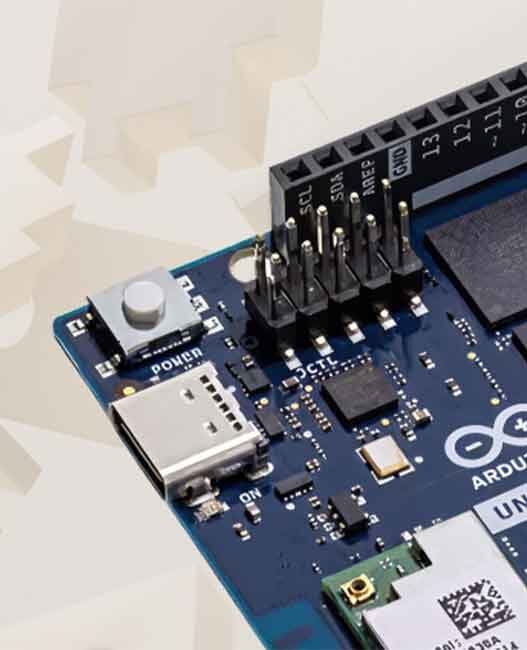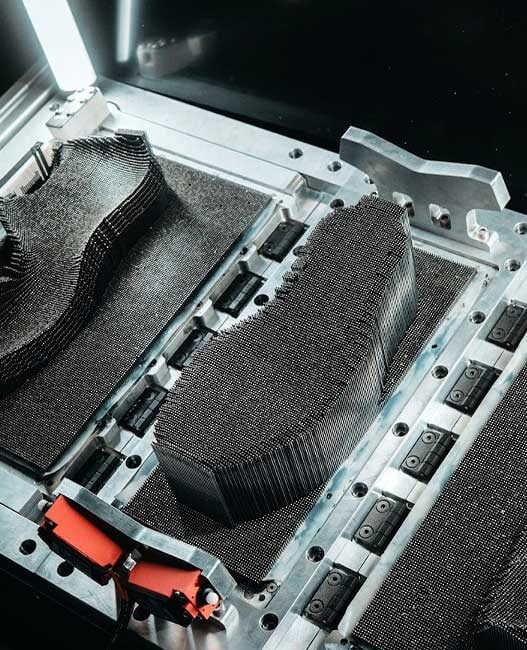Generating ground-breaking technology that aims to put the UK at the forefront of battery innovation and production, projects funded by the challenge have so far worked towards improving battery lifespan, range and charging rate, alongside the reuse, remanufacture and recycling of batteries.
One stand-out project to have benefitted through funding is i-CoBat.
Carried out with partners MIVOLT, The University of Warwick, and Ricardo, the project tested the performance of innovative immersion-cooled battery modules, based on a synthetic ester dielectric liquid.
The project showcased the impact of an immersion-cooled battery on performance compared to cold plate cooling, with several benefits observed, including faster charging times, higher battery output and increased battery longevity.
In time, these direct contact cooling systems could become commonplace technology for Plug-in Hybrid Electric Vehicles (PHEVs) and Battery Electric Vehicles (BEVs).
Another ground-breaking project funded by the challenge is GRAMOX.
Developed with partners The University of Warwick and Anaphite, the project has worked to create a commercially feasible process to form stable graphene-metal oxide composites, producing cheaper battery cathode electrodes with more desirable properties.
Traditional cathode electrode materials suffer from poor electrical conductivity which can lead to power inefficiency; however, by incorporating graphene, the functionality of these electrodes can be improved due to the compound’s electrical conductivity and high aspect ratio.
During the project, alongside carrying out work in order to up-scale the production of these electrodes, the team also discovered a brand-new, low-energy electrode coating process to reduce costs even further.
These technologies and innovations will allow the team to partner with battery manufacturers, providing the insight needed to develop the next generation of electrodes and batteries.
The Li4UK project, carried out alongside partners Wardell Armstrong, Cornish Lithium, and the Natural History Museum, provided much needed insight into the feasibility of lithium sourcing and extraction within the UK.
The study examined potential domestic lithium resources and the viability of extracting these resources, looking into the potential to create a lithium conversion plant to generate a new industry for Britain.
Samples obtained during the study found that the highest lithium grades were found in Cornwall and Aberdeenshire, and that through direct lithium extraction and lithium extraction from a micaceous source, low-carbon lithium compounds could be obtained domestically, meeting the “Rules of Origin” set to be established within the next five years.
Producing and testing the first planar sodium-nickel-chloride (NaNiCl2) battery, the LiNaMan project, carried out with CPI, LiNa Energy, and Lancaster University, was another success of Phase One.
The project set out to demonstrate the high-power potential and performance abilities of the NaNiCl2 battery, alongside showcasing how high-volume manufacturing can be undertaken at scale for the cell.
SUPErB, a project undertaken by University College London, the University of Birmingham, Echion Technologies, William Blythe, and QINETIQ, is another example of a Phase One success.
The project combines the power and cycle-life benefits of a supercapacitor with the energy benefits of a Lithium battery to deliver ultra-fast charge and discharge capabilities.
One of the key challenges for electric vehicles is to meet peak power requirements. Existing high-peak-power devices, such as supercapacitors, suffer from low energy densities, limiting performance.
The project worked to utilise advanced electrode materials and lithium-ion battery engineering in order to overcome this challenge, and successfully developed the SUPErB ultra-high power cell.
During the project, the team were also able to demonstrate a battery capable of a full recharge in less than three minutes, highlighting the applications of this technology.
Tony Harper, Faraday Battery Challenge Director, said: “Phase One of the challenge has seen us fund over 90 projects that have really showcased the best of British innovation within battery technology. Our investments have helped support businesses and organisations of all sizes from across the supply chain to create not only novel technologies, but industry leading research. From exploring Lithium mining in Cornwall to the UK Battery Industrialisation Centre, the first facility of its kind in Europe, we’ve shown that the UK has the skills and expertise to compete on the global stage. As we move toward the next phase of the challenge, I look forward to seeing how our continued support helps these technologies move out of the labs and into mass production.”














